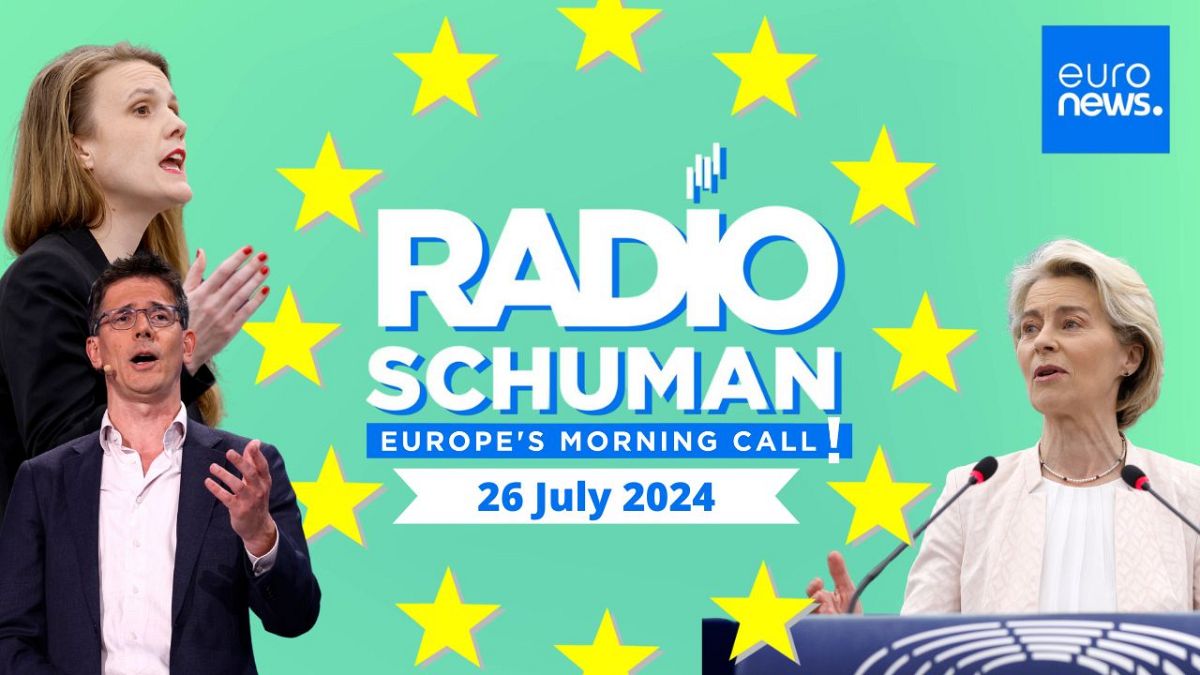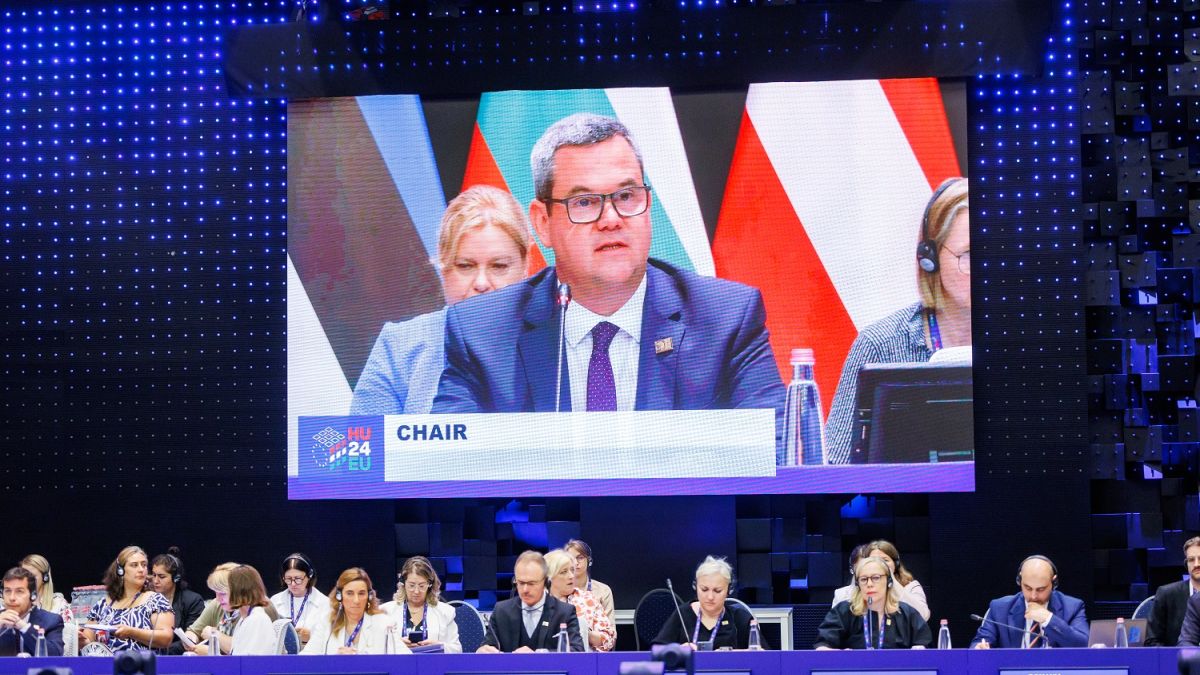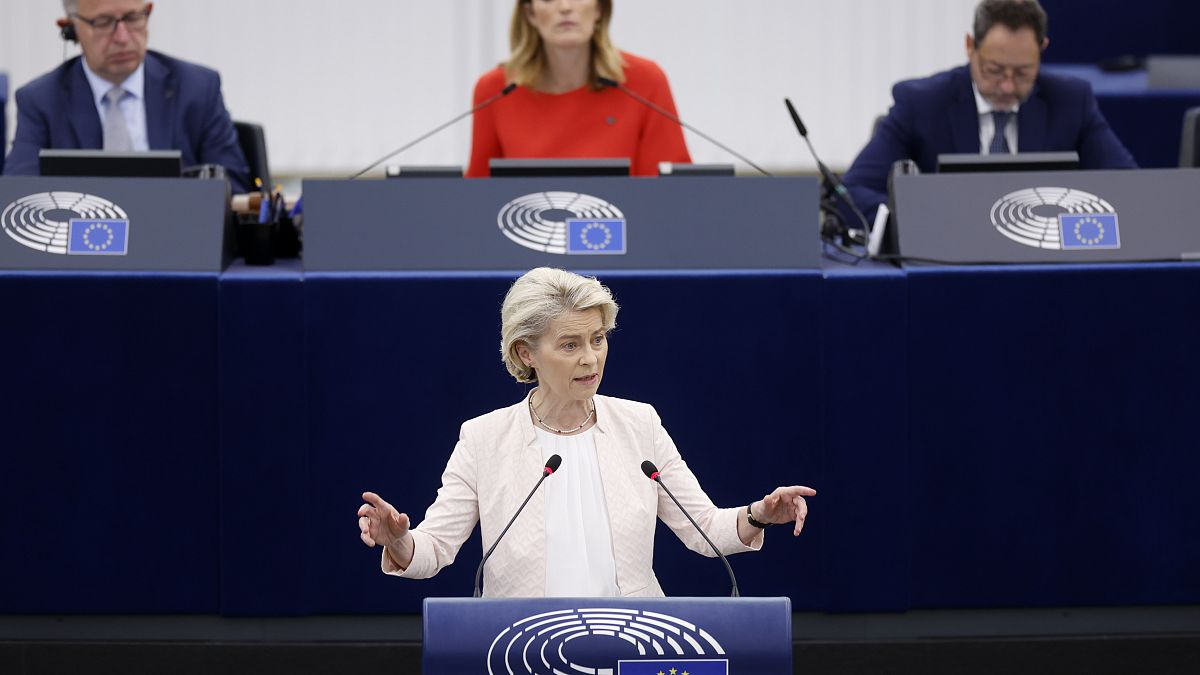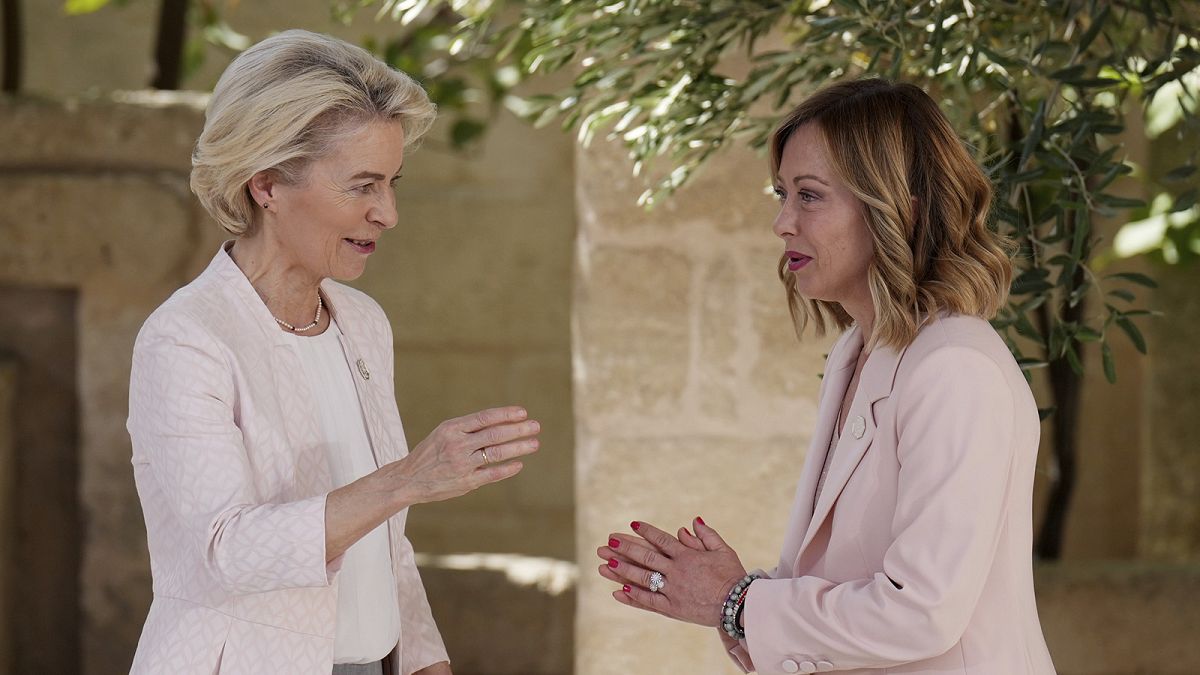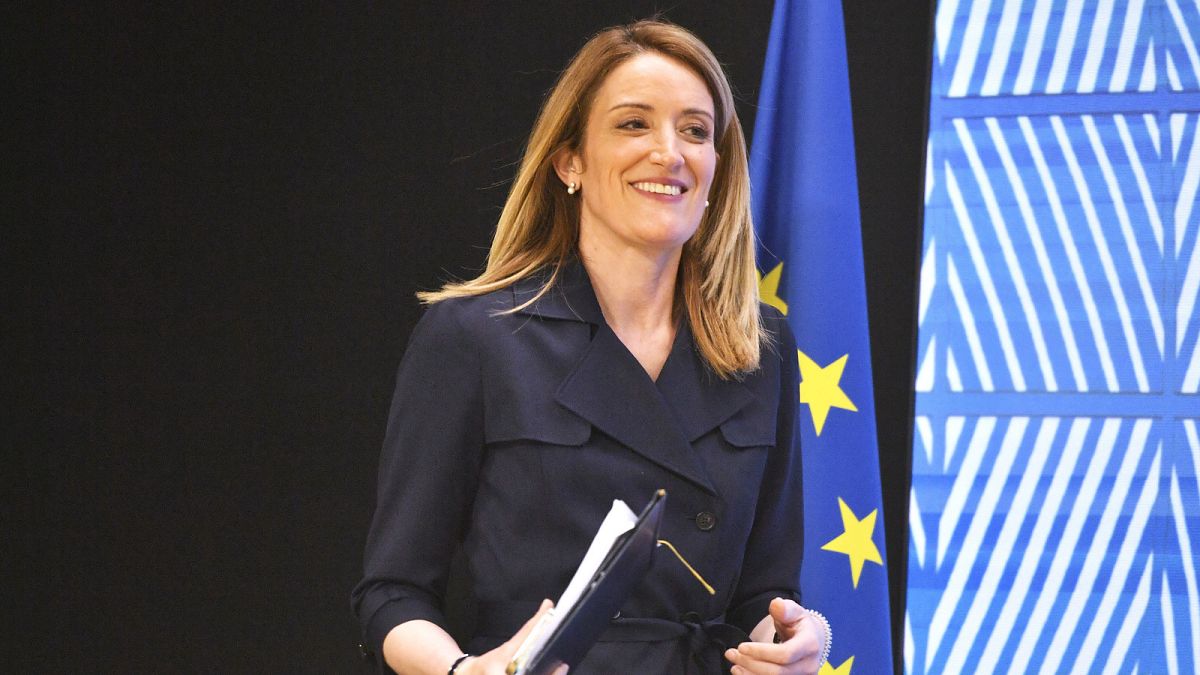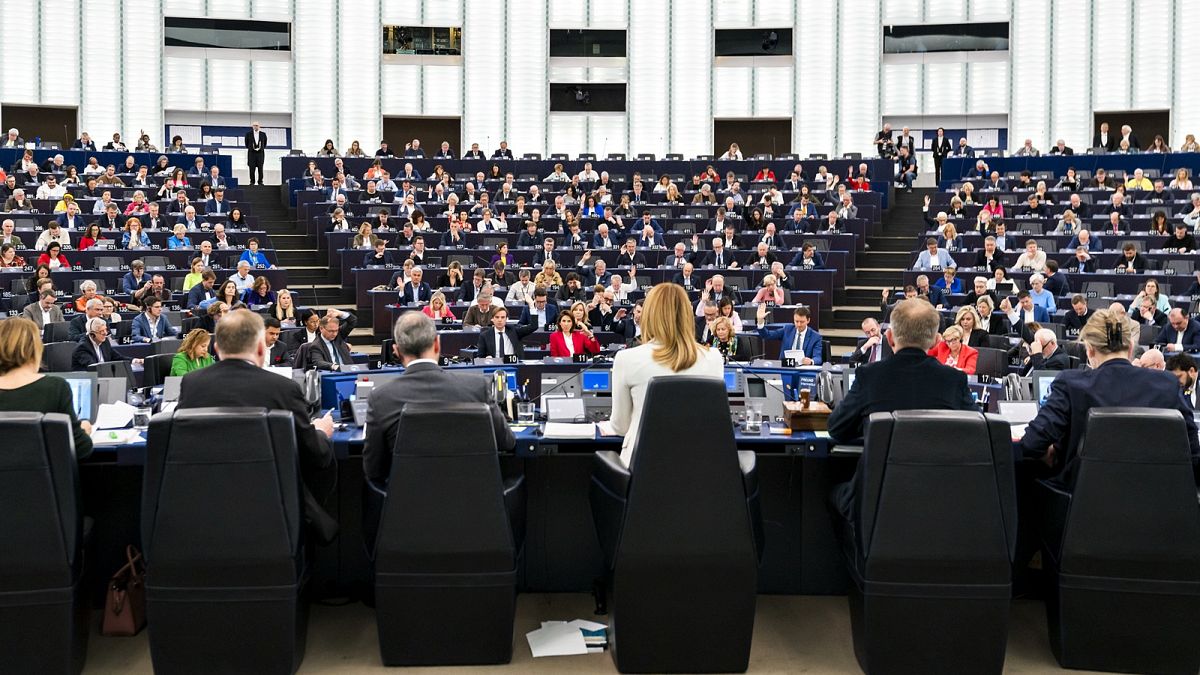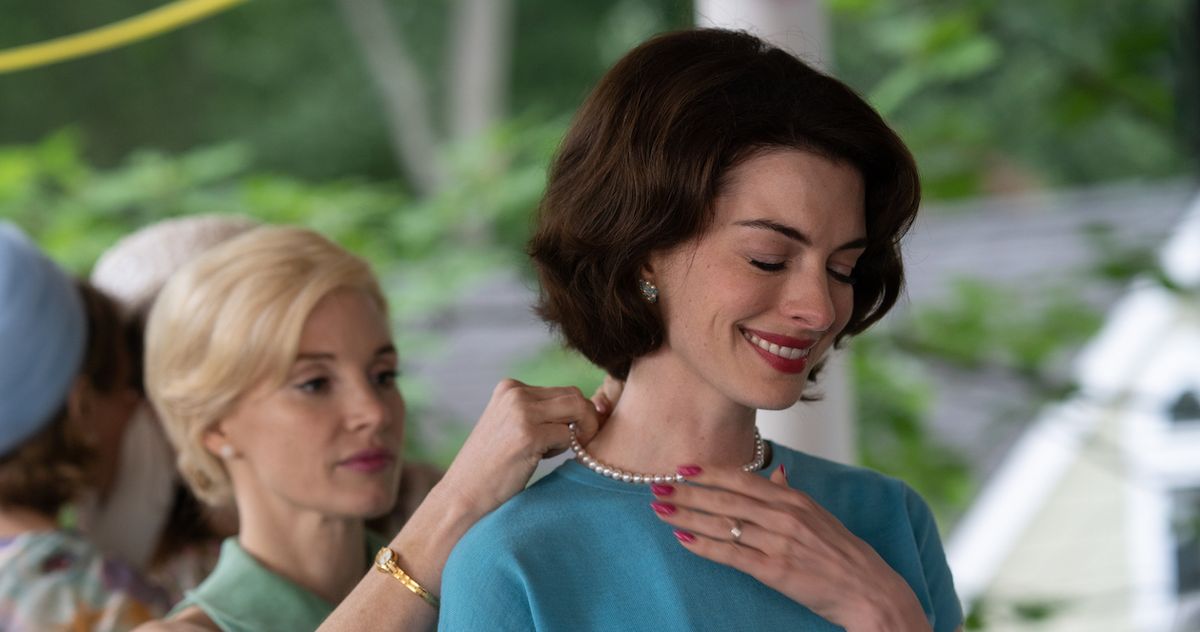World
If not Ursula, then who? Seven in the wings for Commission top job

The Commission chief post will be put up for grabs after the EU elections. Who might be the other options to Ursula von der Leyen?
A re-appointment of Ursula von der Leyen at the helm of the EU executive seemed a matter of course, but her leadership of the EU executive has lost its lustre in the wake of the withdrawal from office of her pick for SME envoy, Markus Pieper, and following some wobbles over her response to the crisis in the Middle East.
The possibility that she mightn’t now get the nod of both EU leaders and incoming MEPs this summer has become a more realistic prospect.
Her main selling point has always been continuity with the current Commission, but also the lack of actual competitors for her post.
Alternative names are now doing the rounds, however – at least in Brussels – although other candidates won’t formally throw their hat in the ring before the elections.
Mario Draghi, the Wizard
Draghi’s speech (16 April) at the high-level social forum in La Hulpe was hailed by the Italian press as a thinly disguised candidacy for the top job. Even in Brussels, the former Italian prime minister enjoys a reputation for making things happen, as if by magic.
The secrets of his witchcraft remain elusive, however – his spell in the face of the euro-area debt crisis was “whatever it takes”. He appears to be developing a new incantation in connection with the report on competitiveness he is preparing, commissioned by von der Leyen herself, referring to the need for “a radical change”.
Pros: Probably the most known European politician with an aura of infallibility, also perceived to be above the fray of party politics.
Cons: The risk of having someone who’s “too good” in the top job, overshadowing everyone else – one reason that led Italian parties to pull the plug on his premiership.
Odds: EU leaders and MEPs unlikely to reject Draghi, even Viktor Orban has told reporters in Brussels he “likes” him.
Kristalina Georgieva, the Evergreen
Outgoing European Council President Charles Michel – who will be a key broker in negotiations for the next EU top jobs – said ahead of the special April EU summit that the next Commission will be an ‘economic’ one.
If this is true, who better than the current International Monetary Fund director, Kristalina Georgieva, for the top job?
The name of the former EU budget Commissioner is an evergreen when EU key posts are discussed – and was already circulated in 2019 when von der Leyen was ultimately appointed.
Pros: She could be Eastern Europe’s long-awaited first Commission chief since the ‘Great Enlargement’.
Cons: She has just been reappointed as IMF Director and compared to other candidates, has fewer connections to the key decision-makers in Brussels.
Odds: Strong with the Council for her support of Eastern countries, solid to shaky in the Parliament.
Andrej Plenković, the Outsider
If its official Spitzenkandidat von der Leyen should fall, the centre-right European People’s Party (EPP) has other strings to its bow – including Plenković.
The Croatian prime minister has led the government since 2016 and might be tempted to pursue a more international career, particularly if his party is defeated in the national elections scheduled for this week.
Pros: Longstanding experience as head of government, emanates from EU’s newest member state – a goodwill signal to candidate countries on the waiting list.
Cons: More ‘political’ than ‘policy’ oriented profile.
Odds: Friendship with many fellow EU leaders might make it easy to be appointed but confirmation would rely on coalition-building ability in Parliament.
Roberta Metsola, the Apprentice
When Time magazine included Metsola among 100 emerging leaders shaping the world in 2023, von der Leyen herself penned the accompanying encomium.
“Do not ever give in to cynicism. You can be the engine of change,” the current Commission chief advised the younger politician who might now succeed her mentor.
In her short international career, Metsola has burnished her EPP credentials, becoming the first EU politician to meet Zelenskyy in Kyiv following Russia’s full-scale invasion of Ukraine.
She’s no frontrunner however: her name would likely emerge if there was no agreement on reappointing von der Leyen and likelier candidates fell away.
Pros: Charisma and youth, plus strong pro-European credentials.
Cons: Lack of international experience, no previous jobs in any government – a problem for EU leaders.
Odds: Easier in the Parliament as outgoing president, more challenging in the European Council.
Kyriakos Mitsotakis, the Ace
Greece’s prime minister could prove another ace in the hole for the EPP if things get tough around the negotiating table. In a recent tweet, EPP party leader Manfred Weber said that Mitsotakis “represents EPP leadership at its best” – words he’d not likely offer von der Leyen.
Mitsotakis is well-liked by fellow EU leaders and could also be a good pick for chairing the European Council if the EPP fails to take the Commission post.
At the recent Euronews ON AIR event, the Greek leader highlighted three main drives for the next EU term: strategic autonomy, competitiveness, and food security – sounding prepared for a State of the Union speech.
Pros: Previous experience as EU leader. He speaks good English and French, and enough German to address the plenary in the annual State of the Union address.
Cons: The whiff of domestic scandal could make him a risky choice.
Odds: Strong with the Council, relying on the political majority in the Parliament as EPP candidate.
Christine Lagarde, the Banker
The current European Central Bank (ECB) governor would be another solid pick if Michel’s prophecy about an ‘economic’ Commission turns out to be right – particularly if negotiations fall into stalemate.
In 2019, she won the helm of the ECB given a push by Emmanuel Macron and might well be the French president’s pick once again.
Pros: Good record wherever she’s been, from the French government to the IMF and the ECB.
Cons: A choice that would look bureaucratic or detached from citizens, too close to Macron (for good or ill).
Odds: If her name emerges at the leaders’ table, it’s a sure sign they’re running out of ideas and she could be one of the last good picks available. Could she win the support of a right-leaning Parliament, however?
Klaus Iohannis, the Strategist
What if Michel is wrong and Europe opts for another ‘geopolitical’ Commission? In this case, the Romanian President’s name might emerge like a rabbit from the hat.
Iohannis is also running for NATO Secretary General – although Dutch PM Mark Rutte seems to have the edge in that race – so he has a ready-made vision for Europe’s defence that might be recyclable for the next Commission.
Pros: Candidate from an Eastern country and the EPP.
Cons: Depends on the outcome of the NATO race.
Odds: Relatively well viewed in the European Council, but needs an EPP majority in the Parliament.

World
Celine Dion Makes Triumphant Comeback at Paris Olympics Opening Ceremony — Watch Full Performance

ad
World
95 Libyan nationals arrested in South Africa at suspected secret military training camp
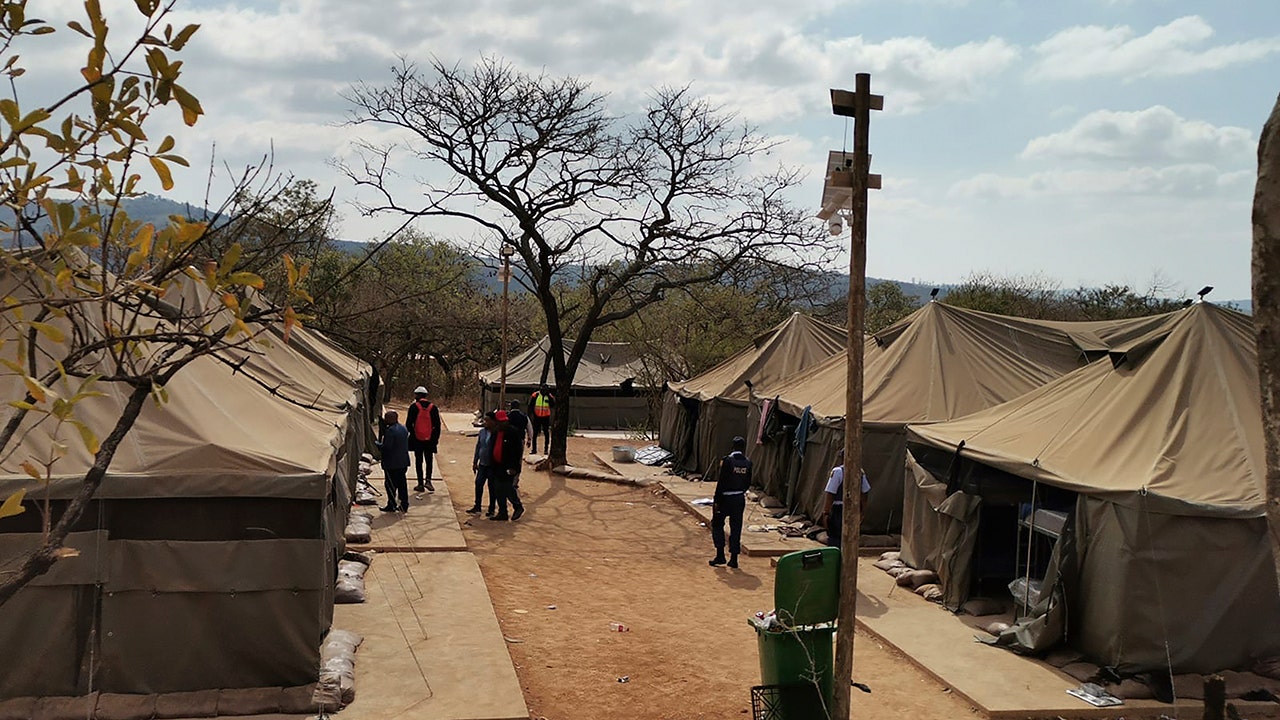
South African police arrested 95 Libyan nationals in a raid on a suspected secret military training camp on Friday and authorities said they were investigating whether there were more illegal bases in other parts of the country.
The camp was discovered at a farm in White River in the Mpumalanga province, about 360 kilometers (220 miles) northeast of Johannesburg, police said.
ELEPHANTS KILL TOURIST IN SOUTH AFRICA AFTER HE TRIED TO GET CLOSE TO TAKE PICTURES
National police spokesperson Athlenda Mathe said in a post on the social media site X that the Libyans stated they had entered the country on study visas to train as security guards, but police investigations suggest they have received military training.
The Newzroom Afrika TV news channel broadcast pictures of the site of the arrests, showing a military-style camp with large green and khaki tents set up in a row. Dozens of men were seen lining up as they were arrested. They were wearing civilian clothing.
Local government official Jackie Macie said investigations were ongoing and the owner of the farm would be questioned. He said authorities received information that there were similar secret camps near two other towns in Mpumalanga province.
A camp where 95 Libyan nationals were arrested on suspicion of running an illegal military camp are seen lining up after their arrest on Friday, July 26, 2024 in White River, South Africa. Police say that 95 Libyan nationals were arrested on suspicion of receiving training at a secret military camp in the north of the country. (AP Photo/Bulelwa Maphanga)
The province borders neighboring countries Mozambique and Swaziland and is an area of concern for South African authorities with regards to illegal immigration.
Police and authorities have not said whether the camps are suspected of being connected to a particular group or conflict.
Macie said investigations would establish if there was a network of camps in South Africa and show “why they are here doing military training in our country.”
Police said the men may be linked to crimes reported in communities close to the farm in recent months.
“We have serious cases which have been opened with the police, including cases of rape and armed robberies, which complainants claim were committed by unknown foreigners who seem to be of Asian descent,” said police spokesman Donald Mdhluli.
“We take what we have found here today very seriously because we don’t know who was training them, what were they being trained for and why that training is happening here in South Africa. It may be a threat not only to South Africa but also to the entire southern Africa region.”
Police said the operation to arrest the Libyans and close down the camp began two days ago. Macie said the Libyan nationals had been in the country since at least April.
“The 95 individuals taken into custody are all Libyan nationals and are currently being questioned by the relevant authorities,” Mpumalanga acting provincial police commissioner Maj. Gen. Zeph Mkhwanazi said in a statement.
Mdhluli, the police spokesman, said the country’s security regulator had confirmed that the kind of training that appears to have been taking place at the camp was well beyond the scope of training for security guards.
“The kind of equipment we found here shows that there was intense military training taking place here. This was basically a military base.”
World
Passengers face long, uncertain wait at stations amid rail disruption

A deliberate fire in a signal box about 60 km south of Lille caused the disruption on the northern high-speed line, with traffic halted around 5 a.m. local time on Friday.
Travel was severely disrupted in Lille on Friday, one of the stations affected by the sabotage that hit major French rail lines ahead of the Paris Olympics opening ceremony.
Many passengers waited with hope that soon turned to resignation.
“We’ve been waiting since 10:38 a.m. for the 11:38 a.m. train, and now we’re just waiting for it to arrive at 2:08 p.m.,” said Delphine, one of the stranded passengers.
“It’s still quite a delay, and we’ll be even later since we’re on a secondary route. I work in Avignon at 9 p.m., so it’s going to be very, very tight. We have a concert tonight — will it even happen? This is all very confusing, and we don’t understand what’s going on.”
For one traveller, this was a rough start to the holidays. “The worst case would be if the train is cancelled entirely and we have to buy new tickets for next week. It would shorten our already brief vacation. That would be a huge problem,” said Hippolyte.
When asked if he had been informed of the delays, Hippolyte said he received the notification just before departure.
“At around 10 a.m. this morning, we were told we were an hour late and would be leaving at 1 p.m.”
“It just keeps getting later as the day goes on. Every time we approach the new departure time, it gets pushed back another hour and a half, or half an hour each time.”
A deliberate fire in a signal box about 60 km south of Lille caused the disruption on the northern high-speed line. Traffic was halted around 5 a.m. on Friday.
The recent acts of sabotage on the rail network highlight that the Olympic Games are turning France into a prime target.
The attack disrupted the transport system on the opening day of the Games, causing delays of up to two hours or even cancellations that affected hundreds of thousands of passengers nationwide.
Authorities in Paris have said they are deploying substantial human resources to counter any threats and to ensure the safety of the events.
-

 World1 week ago
World1 week agoOne dead after car crashes into restaurant in Paris
-

 Midwest1 week ago
Midwest1 week agoMichigan rep posts video response to Stephen Colbert's joke about his RNC speech: 'Touché'
-

 News1 week ago
News1 week agoVideo: Young Republicans on Why Their Party Isn’t Reaching Gen Z (And What They Can Do About It)
-

 News1 week ago
News1 week agoIn Milwaukee, Black Voters Struggle to Find a Home With Either Party
-

 Politics1 week ago
Politics1 week agoFox News Politics: The Call is Coming from Inside the House
-

 News1 week ago
News1 week agoVideo: J.D. Vance Accepts Vice-Presidential Nomination
-

 Movie Reviews1 week ago
Movie Reviews1 week agoMovie Review: A new generation drives into the storm in rousing ‘Twisters’
-

 World1 week ago
World1 week agoTrump to take RNC stage for first speech since assassination attempt
